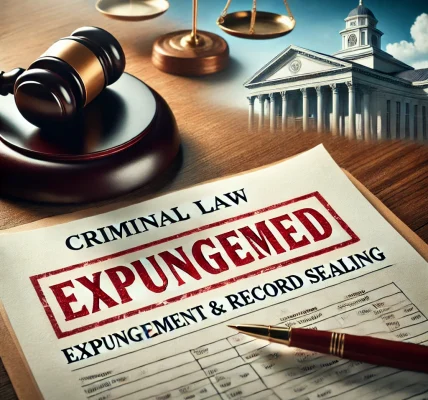Being arrested can be a frightening and overwhelming experience. However, knowing your rights and how to handle the situation can make a significant difference in the outcome of your case. This guide provides essential information about your legal rights, what to do if you are arrested, and how to protect yourself during the legal process.
Your Legal Rights When Arrested
The U.S. Constitution guarantees specific rights to individuals who are arrested. These rights are designed to ensure fair treatment and to prevent abuse of power by law enforcement.
1. The Right to Remain Silent
One of the most important rights you have is the right to remain silent. Under the Fifth Amendment, you are not required to answer any questions from law enforcement officers beyond providing your name and basic identification details. Anything you say can be used against you in court, so it is best to exercise this right and politely inform the officers that you wish to remain silent.
2. The Right to an Attorney
Under the Sixth Amendment, you have the right to legal representation. If you cannot afford an attorney, one will be provided for you by the court. It is crucial to request a lawyer as soon as possible and avoid answering any questions until your attorney is present.
3. Protection Against Unlawful Searches and Seizures
The Fourth Amendment protects you from unreasonable searches and seizures. Law enforcement officers generally need a warrant to search you or your property unless certain exceptions apply, such as:
- You give consent to the search.
- The officers have probable cause to believe you are involved in a crime.
- The search is incident to an arrest (e.g., checking for weapons).
4. The Right to Know the Charges Against You
If you are arrested, you must be informed of the charges against you. This ensures that you understand why you are being detained and allows you to prepare an appropriate legal defense.
5. The Right to a Fair Trial
You are entitled to a fair and speedy trial under the Sixth Amendment. This means you have the right to challenge the charges, present evidence, and have a jury determine your guilt or innocence.
What to Do If You Are Arrested
Knowing how to react during and after an arrest can help protect your rights and improve your chances of a favorable legal outcome.
1. Stay Calm and Compliant
Resisting arrest or arguing with law enforcement can escalate the situation and lead to additional charges. Remain calm, follow instructions, and do not physically resist, even if you believe the arrest is unjust.
2. Do Not Speak Without an Attorney
Politely tell the officers that you wish to remain silent and that you want a lawyer. Do not provide explanations, excuses, or stories, as anything you say can be used against you.
3. Do Not Consent to Searches
If officers ask to search your belongings, vehicle, or home, you have the right to refuse unless they have a warrant or a legal exception applies. Clearly state, “I do not consent to a search.”
4. Make Note of Important Details
If possible, take mental notes about the officers involved, badge numbers, patrol car numbers, and any witnesses. This information can be valuable if you need to challenge the arrest later.
5. Contact an Attorney Immediately
As soon as you are given the opportunity, request to speak with a lawyer. A legal professional can guide you through the process, protect your rights, and help build your defense.
6. Avoid Discussing Your Case with Others
Do not discuss your case with friends, family, or fellow detainees. Anything you say can be used against you, even if you believe the conversation is private.
What Happens After an Arrest?
Once you are arrested, the legal process begins. Here is what you can expect:
1. Booking and Processing
After your arrest, you will be taken to a police station or jail for booking. This process includes recording your personal information, taking fingerprints, and possibly taking a mugshot.
2. Bail and Release Options
Depending on the severity of the charges, you may be eligible for bail. Bail allows you to be released from custody while awaiting trial. If you cannot afford bail, a bail bondsman may be an option, or your attorney can request a bail reduction.
3. Arraignment and Court Appearances
An arraignment is your first court appearance, where you will be formally charged and given the opportunity to enter a plea (guilty, not guilty, or no contest). Your attorney will advise you on the best course of action.
4. Pre-Trial Proceedings and Negotiations
Your lawyer may negotiate with prosecutors to reach a plea agreement or prepare for trial by gathering evidence, filing motions, and interviewing witnesses.
5. Trial and Sentencing
If your case goes to trial, both sides will present evidence, and a judge or jury will determine the verdict. If found guilty, sentencing will follow based on the charges and legal guidelines.
Key Takeaways
- Exercise your right to remain silent and request an attorney immediately.
- Do not consent to searches without a warrant.
- Stay calm and comply with law enforcement instructions.
- Avoid discussing your case with anyone except your lawyer.
- Follow the legal process and work closely with your attorney to protect your rights.
Understanding your rights and knowing how to respond if you are arrested can help you navigate the legal system effectively. If you or a loved one is facing legal trouble, seeking professional legal advice is always the best course of action.




